Hundreds of people gathered in front of Kelowna General Hospital on Wednesday afternoon to voice opposition to mandatory vaccinations for some healthcare workers in B.C., as well as vaccine passports.

Protestors were carrying Canadian flags, shouting and waving signs that read everything from “My body my choice” to “I am informed and I don’t consent.”
They slowed traffic along Pandosy Street, with Kelowna RCMP issuing a statement just before 3 p.m., asking motorists to avoid the area because of congestion.
Global News spoke to several healthcare workers at Kelowna General Hospital, who said while they respect the right to protest, demonstrating in front of a hospital was simply the wrong place to gather.
Local politicians supported that view.
“The caring people who work in this hospital have been run off their feet,” Dan Albas, MP for Central Okanagan-Similkameen-Nicola, said in a Tweet.
“It is well known the COVID ward is beyond capacity. The people who work in healthcare during this pandemic deserve our gratitude and support. This protest should have been held elsewhere.”
Kelowna mayor Colin Basran also spoke out against the protest.

Get weekly health news
“I think it’s really disgusting that you have healthcare workers who are under tremendous stress, keeping people alive, particularly the unvaccinated who’ve now gotten sick,” said Basran.
“And to go and protest and put further stress on them, I think is so misguided and irresponsible.”
Basran continued, saying “it’s really unfortunate that the hospital was chosen as the place for this type of demonstration.”
Asked about the large number of protesters, which appeared in excess of 1,000, Basran said he intentionally stayed away from the area.
“It wasn’t something that I was interested in,” said Basran, adding he expects to get a police report on how things went.
“But the thing I really want to stress is: What was accomplished by this protest? Healthcare workers didn’t make these restrictions. Kelowna city council doesn’t make these restrictions.
“So they’re completely misguided in terms of who they’re protesting or who’re trying to send a message to. And, at the end of the day, these healthcare workers are the people who these protesters are going to turn to when they get sick.
“So I just don’t understand it and I think it speaks to the level of intellect of the people involved in these protests who don’t understand who’s making the decisions. It just baffles me that they feel like they need to take their frustrations out on our healthcare workers.”
Protests of this kind have been a staple in Kelowna since the start of the pandemic and have varied in size from a dozen people to hundreds.
This event was expected to be on the large side as it was well advertised through social media in recent days, with similar protests planned across Canada.
So much so that healthcare workers at the hospital said they were worried.

Last weekend, Global News spoke with one hospital worker regarding her concerns.
“We’re angry, we’re shocked, and we’re upset. (Hospital workers) don’t even understand how this could be happening, they don’t understand how it’s happening at the location that’s been chosen,” said the worker, whose identity has been withheld due to safety concerns.
“I wish that these protesters could come work in the intensive care unit and see the damage that’s being done. To see what they’re doing, what they’re causing, and what they’re contributing to.”
The protest was being held by an organization called Canadian Frontline Nurses, which is asking would-be participants to “stand together and reject the tyranny of mandatory vaccines.”
Vaccines are not mandatory for the public in B.C., but they are for long-term care and assisted living workers.
As of Sept. 13, proof of vaccination will also be required for people aged 12 and older for some social and recreational events, services and businesses.

More details about the proof of vaccination requirement, and how to show proof, will be made available by the province before Sept. 13, but the “vaccine passports” are a measure that a majority of British Columbians support, according to a recent poll.
A survey, conducted by B.C.-based pollster Research Co., found that 67 per cent of respondents backed the idea of proof of COVID-19 immunization to attend a live sporting event, up five per cent from a similar poll in March.



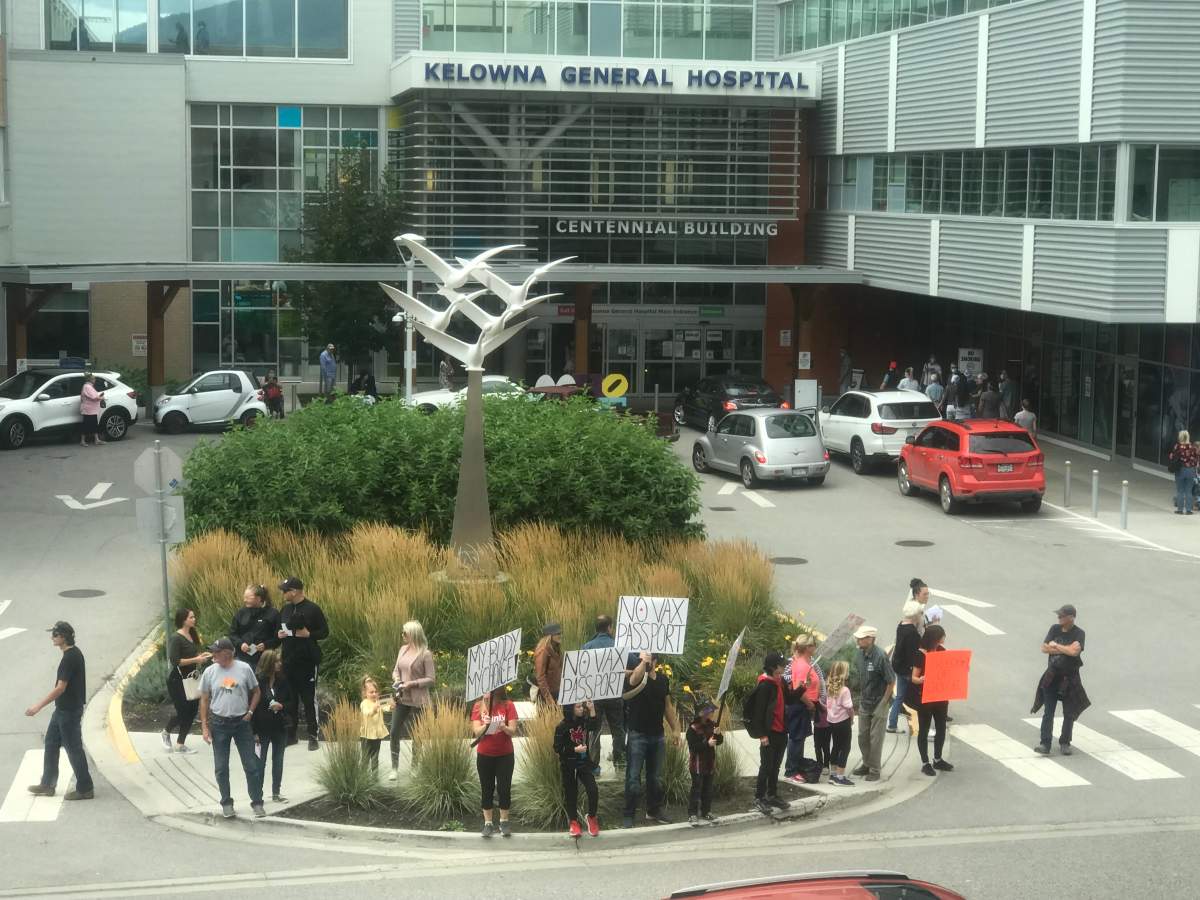

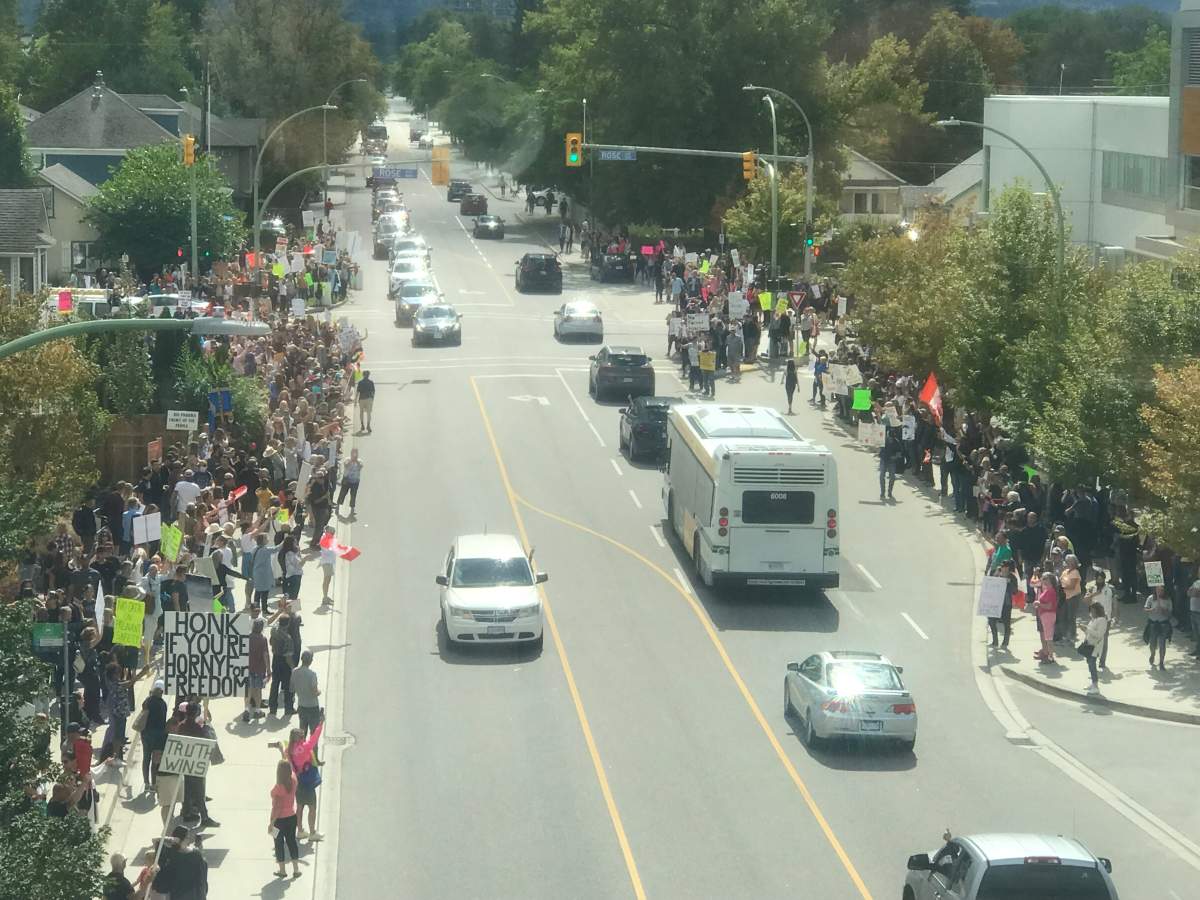

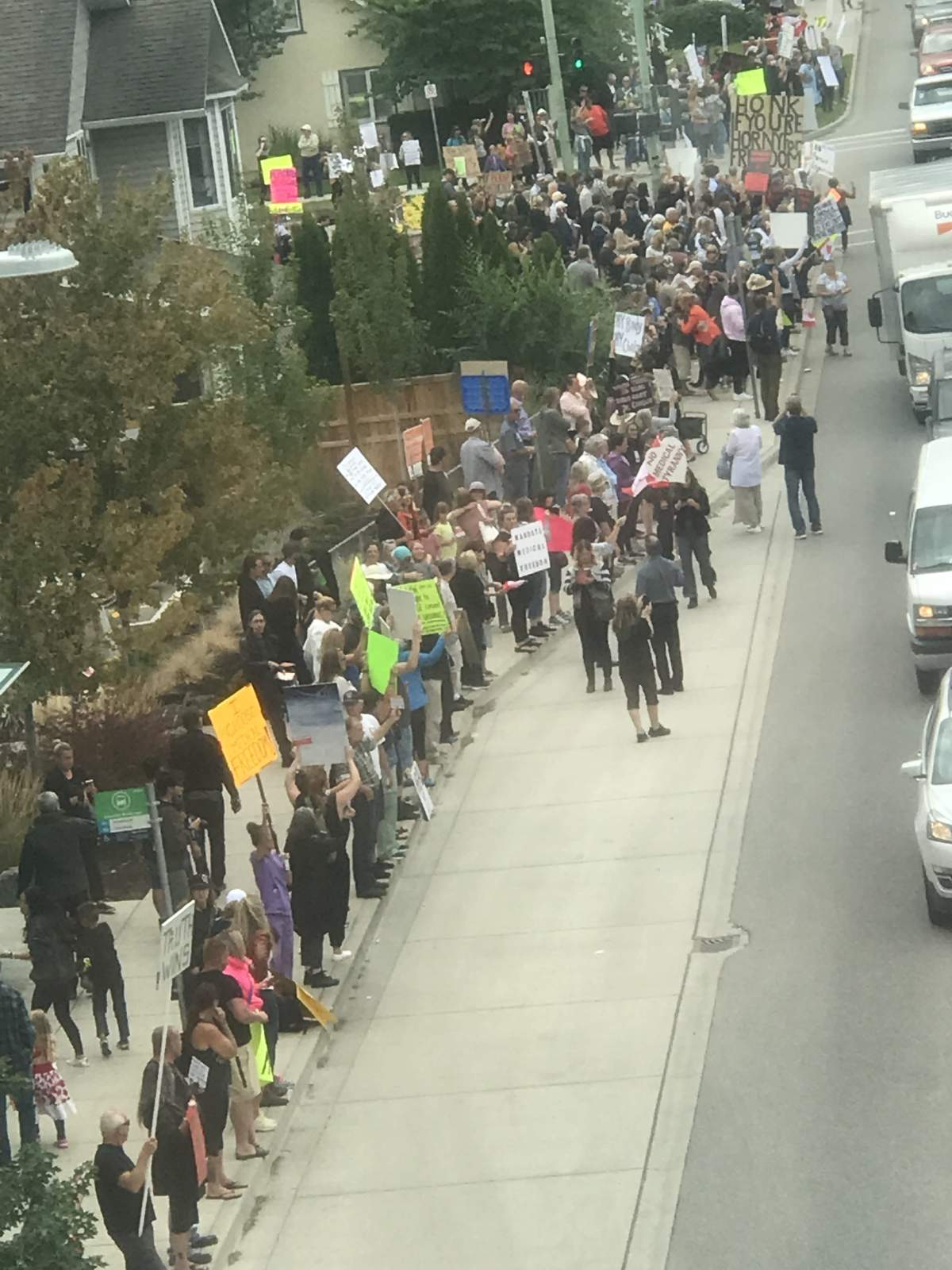



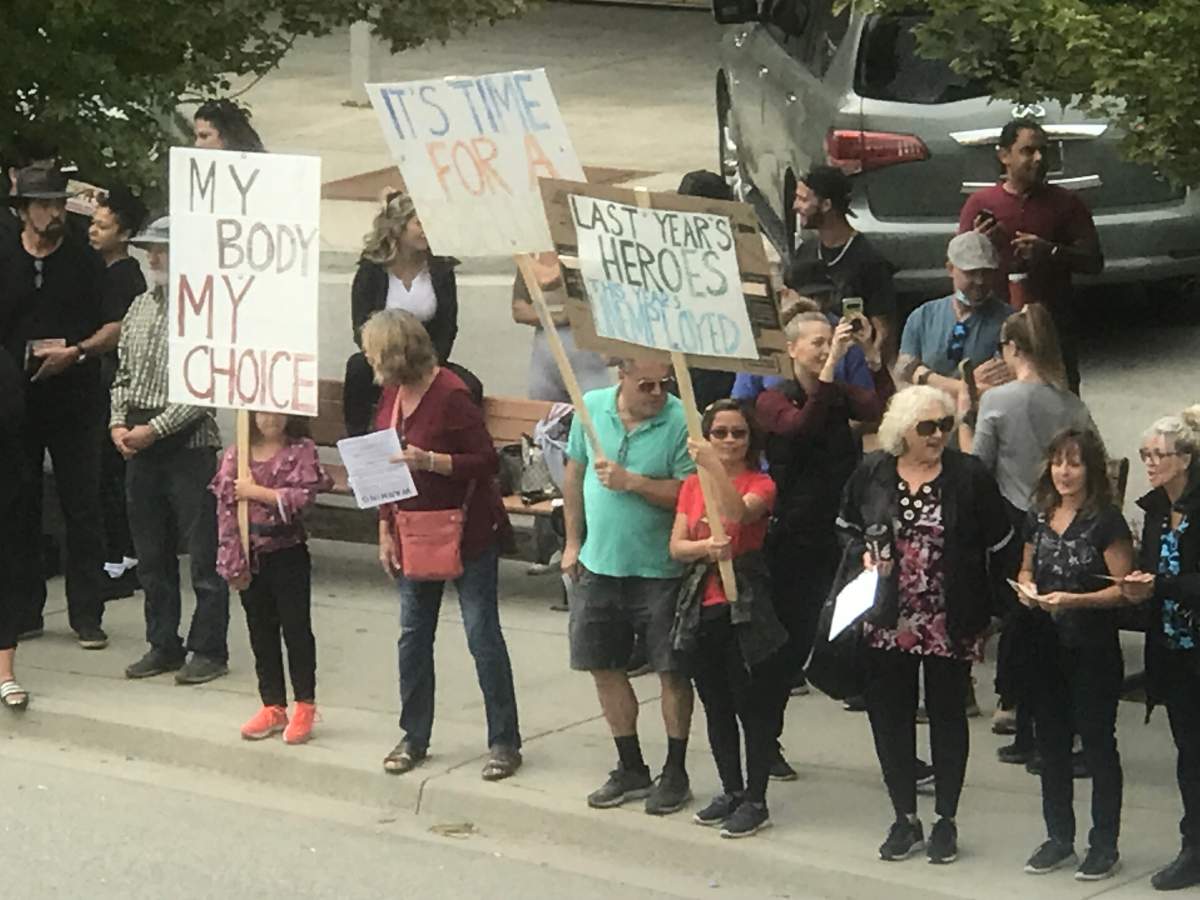

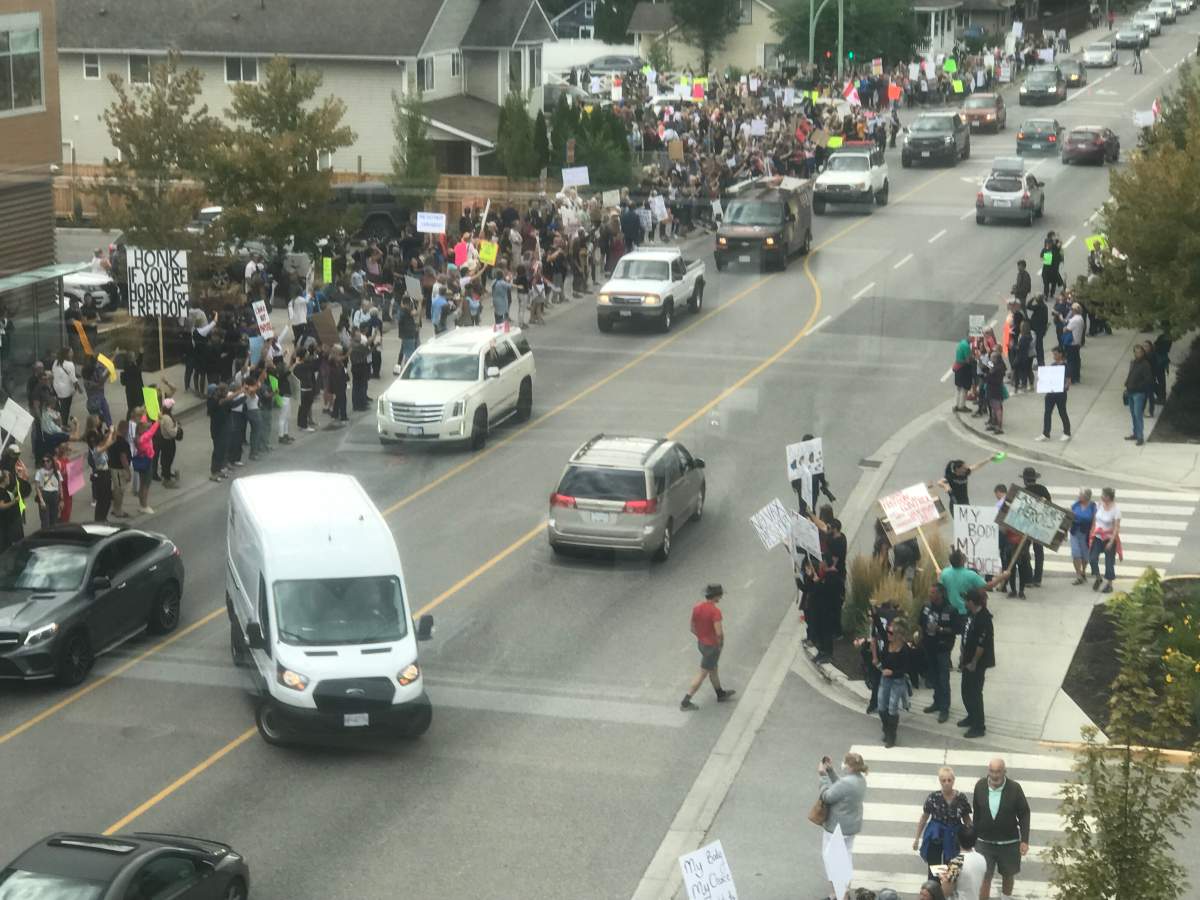






Comments
Comments closed.
Due to the sensitive and/or legal subject matter of some of the content on globalnews.ca, we reserve the ability to disable comments from time to time.
Please see our Commenting Policy for more.